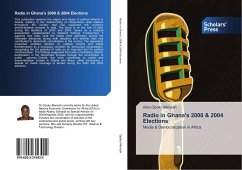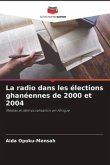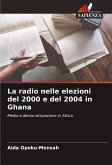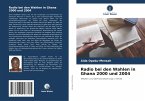This publication captures the origins and impact of political reforms in Ghana, leading to the mushrooming of independent radio stations throughout the country that has supported the country's democratization process to date. The focus is on the role of radio during the elections of 2000 and 2004, based on a national assessment, supplemented by fieldwork findings. Furthermore, it explores how radio (and the media more generally) served the Ghanaian electorate during both elections and whether their role contributed to democratic consolidation in the country. The arguments presented amplifies debates on political reforms and media transformation as a necessary condition for democratic consolidation, recognizing the full potential of radio as an important tool for political communication. The findings suggested that radio is facilitating citizens' participation in the democratic process through the construction of public spheres. Overall, this book contributes to media and democratization studies in Ghana and Africa, whilst introducing a debate on media coverage of women during the 2000 and 2004 elections.
Bitte wählen Sie Ihr Anliegen aus.
Rechnungen
Retourenschein anfordern
Bestellstatus
Storno








